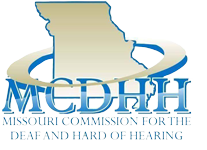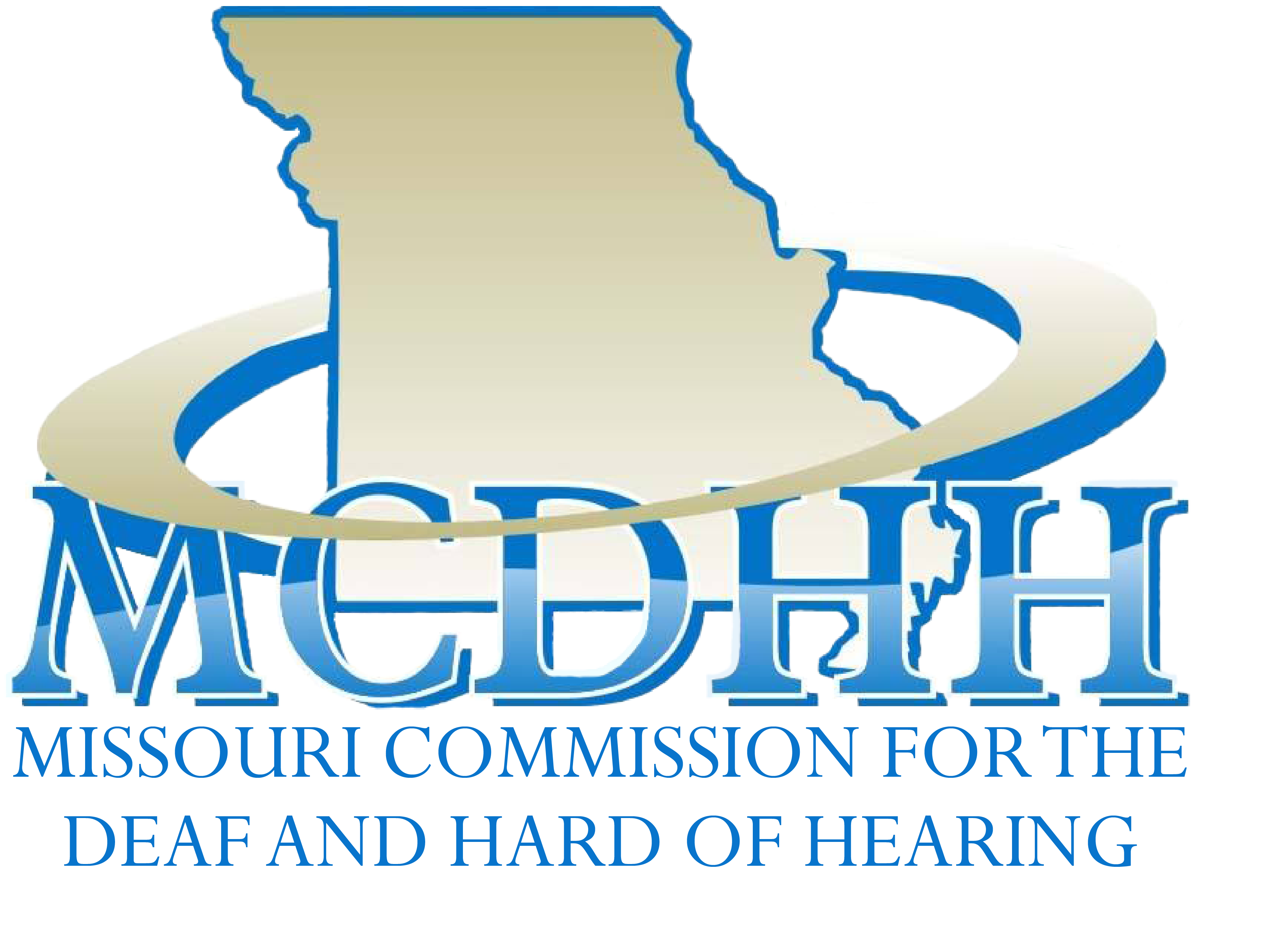Hard of Hearing is a broad term that refers to anyone with a hearing loss. The loss can be mild to profound. Depending on the degree of the hearing loss, individuals will need varying levels of support. Many who are Hard of Hearing will need technology such as hearing aids, cochlear implants, bone conduction implants, or other assistive devices. The Missouri Commission for the Deaf and Hard of Hearing often gets emails and calls from Missourians seeking help for hearing aid assistance and other resources for hearing loss. We are here to help! You are always free to contact our Hard of Hearing Program Manager at (573) 751-3006 with any questions.
Here are some resources to help you in your search for hearing aid assistance.
Website:
The Kansas City Medicine Cabinet helps moderate and low income and under-insured/uninsured greater Kansas City area residents find help for short term medical needs, including hearing aids.
Website:
Center for Hearing & Speech offer financial assistance for the majority of their clients who reside in the St. Louis geographical area but will accept clients statewide, ensuring that low-income individuals or people who may not have appropriate insurance coverage receive the services they need.
Websites:
Midwest Special Needs Trust Charitable Trust Program provides grants to low income Missouri residents with a Social Security-verifiable disability. The maximum grant award is $1,500 for needs not covered by public benefits or other programs.
Vocational Rehabilitation (VR) provides a variety of assistive technology services, devices and equipment to eligible clients. Contact your local VR to see how one can qualify for a hearing aid through their assistive device service.
The MO HealthNet program is based on certain eligibility requirements and may be subject to certain limitations, especially for adults who do not meet the eligibility assistance category. For additional information, please contact your local Family Support Division that can be found in the telephone book located in the Government Section and the County Social Services.
The CYSHCN Program provides assistance for children and youth with special health care needs from birth to age 21. As a payer of last resort, the program provides limited funding for medically necessary diagnostic and treatment services for children whose families meet the financial eligibility guidelines.
The Missouri Assistive Technology offers low- interest loans to Missourians with a disability through their Show Me Loans Programs. Hearing aids is one of their assistive technologies eligible for loans.
The Lions have a long history of providing financial assistance for hearing aids and hearing screenings, through either hearing aid banks or direct assistance. However, not all local regional Lions clubs choose to support this endeavor.
The Resource Center provides free hearing aid loans for children to use at school when their family cannot afford to purchase them or while a child’s hearing aids are being repaired. Hearing aids are donated by community organizations. Our audiologist fits and programs the hearing aids for each student. For those who wish to purchase hearing aids, Our Audiologist is available to assist with selection and provide fitting and programming free of charge.
AccuQuest Hearing Life facilities in central Missouri provides complementary hearing evaluations, and some patients can get hearing aids through the Campaign for Better Hearing Give Back Program.
The Welch-Schmidt Center for Communication Disorders (Center) is a training center for undergraduate and graduate students in the program of speech language pathology and audiology. Licensed, certified speech-language pathologists and audiologists supervise the student clinicians. Due to our low cost and location in the Warrensburg community, we have a large potential client list. We operate year round during University semesters. Scheduling of service is based on the student clinician’s class schedule and supervision availability. Scheduling for therapy services and diagnostic services takes place at the beginning of each semester, roughly early January, early June, and early September.
Websites:
Committed to providing a support network and a sense of belonging by sharing our unique experiences, challenges and coping strategies, helping one another find practical solutions and emotional support, and working together with other organizations and service providers for our common good.
Funding for children whose families cannot afford medical care, equipment (like hearing aids, vehicle modifications, or displacement related to care. Review the assistance criteria and financial guidelines to determine if your child qualifies for funding.
Helps those with limited financial resources find hearing aids.
Provides adults and children with tools for self help; sensitizes the general population about the special needs of people who have hearing loss; and promotes understanding of the nature, causes, complications, and remedies of hearing loss.
Foundation for Sight & Sound provides hearing aids for men, women, and children with limited financial resources.
Children under the age of twenty who are U.S. Citizens and have not received a previous HIKE Award within the last four (4) years and who have been identified as 1) having a need for a hearing aid(s) or an assistive listening device and 2) having a financial need can benefit from HIKE. Considerations include family income, size of household, burdensome medical expenses for the applicant, and the cost of the hearing technology requested.
The foundation provides hearing aid assistance to low income households. Consult with your local Miracle-Ear store for more information.
The Oticon Pediatrics National Hearing Aid Loaner Bank Program will assist with hearing aids and ear molds for children, birth to three.
Affiliated with local speak and hearing centers to which they give scholarships and provide grants for projects on speech and hearing. They have very active hearing aid recycling program.
If you or someone you know is struggling with hearing loss either in the United States or around the world, we may be able to provide hearing aid assistance. Contact us, and a representative from our organization will be in touch to discuss options.
The TPA Hearing Trust for Hearing Impaired is to provide financial aid to children and adults who suffer deafness or hearing impairment and may seek to apply for financial aid for a hearing aid. Please visit their website and note the submission deadline date for the Hearing Trust Application.
Websites:
The websites notes that for Missouri, the program is limited to local beneficiaries (catchment area) only, not available to dependents of retirees.
For veterans with hearing, speech, language, or balance problems, contact Veterans Affairs for information on the process to get hearing aids with the VA.


